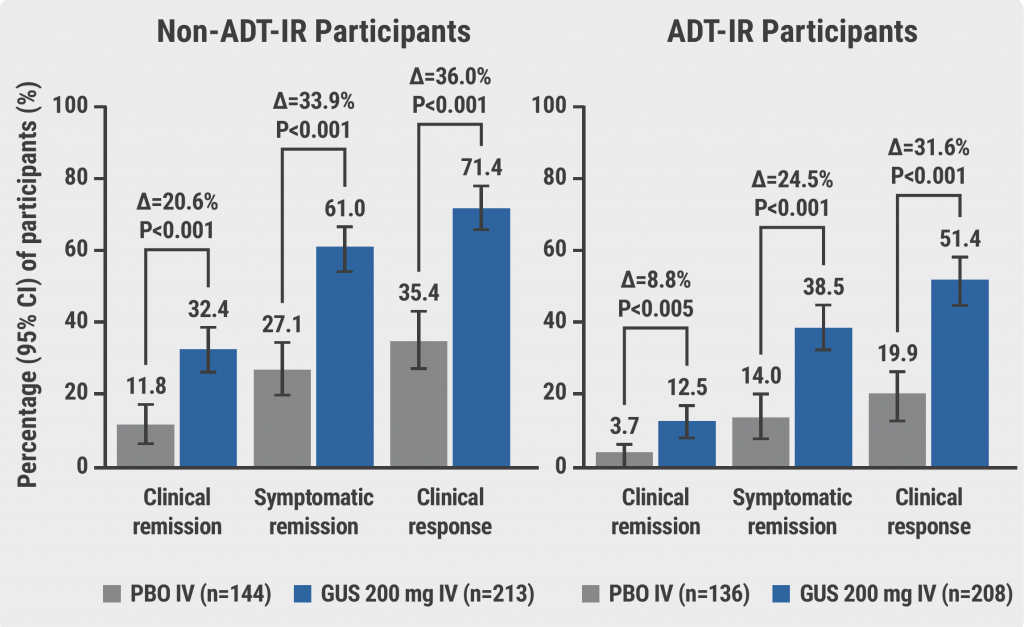https://doi.org/10.55788/c300f88c
The study included 206 patients with alcoholic steatohepatitis or cirrhosis who had been admitted for AAH. Patients were divided into 2 groups based on whether they received inpatient nutritional consultation upon admission. Primary endpoints included hospital length of stay, incidence of decompensation, and changes in nutritional status. Secondary endpoints included 28-day mortality rates and overall meal consumption. Findings were presented by Dr Nariman Hossein-Javaheri (University at Buffalo, NY, USA) [1].
Among the studied patients, 47% received nutritional consultations. These patients had a higher prevalence of cirrhosis (49.5% vs 30.3%; P<0.01), a longer length of stay (9.4 vs 6.6 days; P<0.001), and a higher Model for End-Stage Liver Disease (MELD) score (12.1 vs 9.6; P<0.001). The nutritional status showed lower albumin (3.5 vs 4.2 g/dL; P<0.01) and pre-albumin (11.1 vs 16.6 mg/dL; P=0.02) levels, and a lower BMI (26.3 vs 28.0 kg/m2; P=0.02). Additionally, those receiving nutritional consultation had a higher incidence of ascites (18.5% vs 6.8%; P<0.001), but not of gastrointestinal bleeding (11.3% vs 10.1%; P=0.4), and a lower incidence of encephalopathy (17.4% vs 33.1%; P<0.001).
Nutritional consultation significantly increased total caloric intake by 23.5% (P<0.001) and additional protein intake by 30.6 g. However, the 28-day mortality rate was not significantly different between the 2 groups (7.2% vs 3.7%; P=0.13).
“Patients who received nutritional consultation were generally sicker, with higher MELD scores and greater prevalence of cirrhosis. Despite this, nutritional support led to significant improvements in meal consumption and nutritional intake, highlighting the importance of early dietary consultation in managing AAH,” concluded Dr Hossein-Javaheri.
- Hossein-Javaheri N, et al. Nutritional consultation improves protein and total caloric intake in patients admitted with alcohol-associated hepatitis. 686, DDW 2024, 18–21 May, Washington, DC, USA.
Copyright ©2024 Medicom Medical Publishers
Posted on
Previous Article
« REGENERATE study: Obeticholic acid shows antifibrotic benefit in NASH Next Article
Superior OS with atezolizumab plus bevacizumab versus lenvatinib in unresectable HCC »
« REGENERATE study: Obeticholic acid shows antifibrotic benefit in NASH Next Article
Superior OS with atezolizumab plus bevacizumab versus lenvatinib in unresectable HCC »
Table of Contents: DDW 2024
Featured articles
PREEMPT CRC: Blood-based screening test for colorectal cancer shows promise
Eosinophilic Oesophagitis Treatments and Outcomes
Mepolizumab improves the histologic severity of eosinophilic oesophagitis
Budesonide demonstrates efficacy in eosinophilic oesophagitis
Dupilumab shows promising results in treating paediatric eosinophilic oesophagitis
Quality-of-life assessment in children with eosinophilic oesophagitis
Gut-Brain Axis and Neurological Disorders
Gut permeability and neuroinflammation linked in Parkinson’s disease
Cardiovascular and Metabolic Health Innovations
Promising data for cardiovascular outcomes of bariatric surgery in patients with obesity
Inflammatory Bowel Disease Therapies
GALAXI 2 & 3: Guselkumab proves efficacy in Crohn’s disease
QUASAR maintenance study: Guselkumab effective and safe for UC
VEDOKIDS: Vedolizumab maintains remission in patients with paediatric IBD
ADMIRE-CD II: Darvadstrocel does not meet primary endpoint in complex Crohn’s perianal fistulas
Advances in Endoscopy and Screening Techniques
PREEMPT CRC: Blood-based screening test for colorectal cancer shows promise
New cable-transmission capsule endoscopy shows high accuracy in detecting upper GI lesions
Liver and Biliary Tract Diseases Updates
Superior OS with atezolizumab plus bevacizumab versus lenvatinib in unresectable HCC
Nutritional consultation boosts nutritional status in patients with alcohol-associated hepatitis
REGENERATE study: Obeticholic acid shows antifibrotic benefit in NASH
Acalculous cholecystitis as a risk factor for gallbladder perforation: insights from a 10-year retrospective study
Other Gastrointestinal Diseases
STARS: Apraglutide shows efficacy in short bowel syndrome with intestinal failure
COX-2 inhibitors show promise in reducing severity of acute pancreatitis
Hormone-containing therapies may increase the risk of IBS and functional dyspepsia
Related Articles
December 7, 2023
Risankizumab resolves extraintestinal manifestations in CD
October 23, 2019
Human milk oligosaccharides improve IBS symptoms

© 2024 Medicom Medical Publishers. All rights reserved. Terms and Conditions | Privacy Policy
HEAD OFFICE
Laarderhoogtweg 25
1101 EB Amsterdam
The Netherlands
T: +31 85 4012 560
E: publishers@medicom-publishers.com

